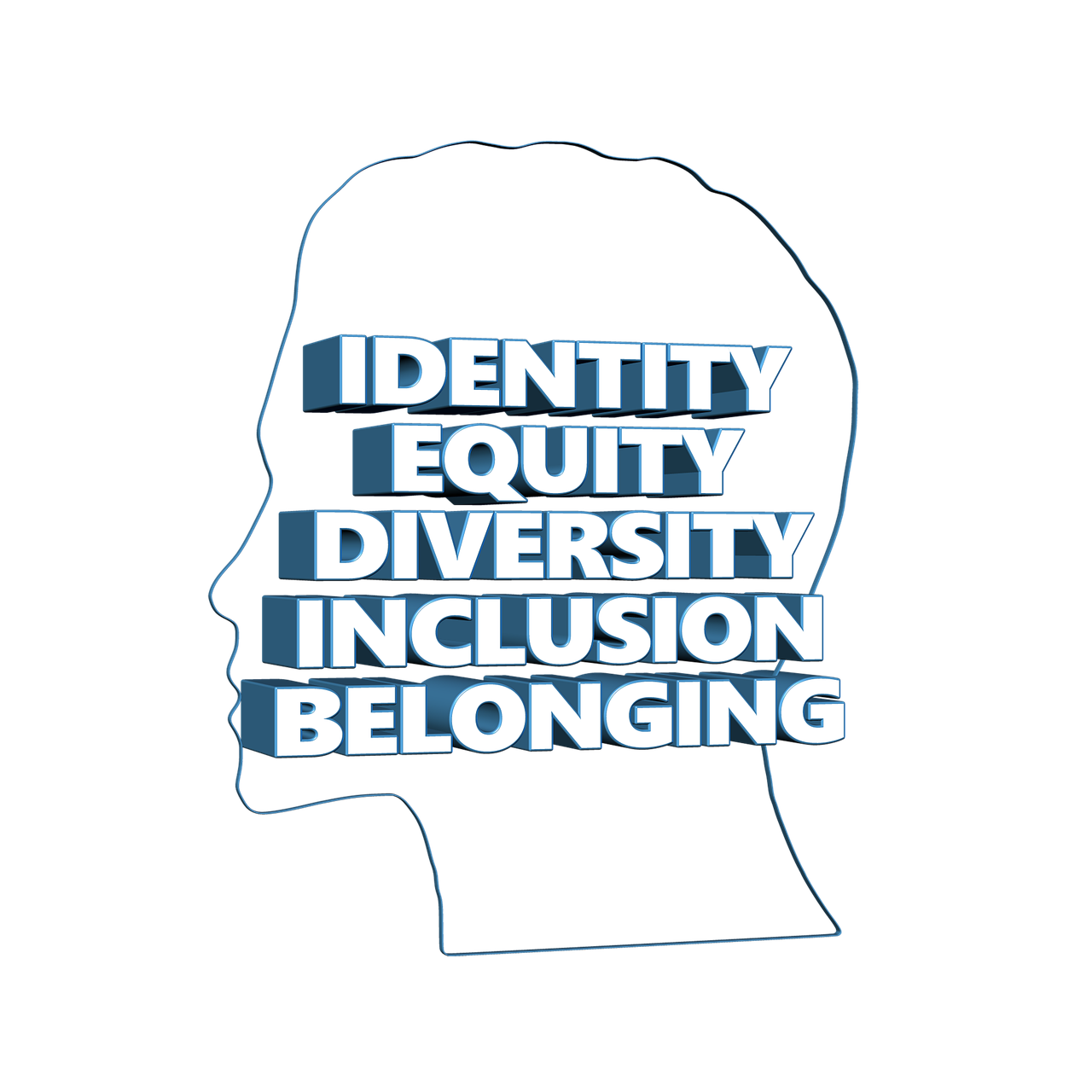Are you interested in investing in companies that prioritize diversity, equity, and inclusion in the workplace? If so, you may be wondering how to go about finding and supporting such organizations. Investing in companies that have a strong commitment to promoting diversity and inclusivity can not only align with your personal values but also potentially yield financial returns. In this article, we’ll explore various strategies and tips to help you invest in companies that prioritize these important principles.

Choosing the Right Investment Strategy
Investing in companies that prioritize and promote diversity, equity, and inclusion in the workplace can be a powerful way to not only support positive change but also potentially drive better financial performance. However, selecting the right investment strategy to align with these values requires careful consideration and research. By following a few key steps, you can make informed choices that align with your goals and values.
Research the company’s diversity and inclusion practices
To begin, it’s important to thoroughly research and understand the diversity and inclusion practices of a company you are considering investing in. Look beyond surface-level statements and explore the company’s commitment to diversity at all levels, from leadership to the broader employee base.
Consider investing in companies with diverse leadership teams
A company’s leadership team plays a crucial role in shaping its culture and driving diversity initiatives. Look for companies that have diverse boards and executive teams, as this is an indicator of a company’s commitment to promoting diversity and inclusion beyond just talk.
Look for companies with employee resource groups and diversity initiatives
Employee resource groups (ERGs) are another important factor to consider. These groups provide a platform for employees of similar backgrounds, experiences, or identities to connect and support one another. Look for companies that have active ERGs and other diversity initiatives in place, as this can indicate a commitment to fostering an inclusive workplace.
Explore socially responsible investment options
One approach to investing in companies with a commitment to diversity, equity, and inclusion is to consider socially responsible investment options. These funds prioritize investing in companies that demonstrate strong environmental, social, and governance (ESG) practices. They can help you align your investment choices with your values while potentially driving positive social change.
Analyzing the Company’s Diversity Data and Policies
To gain a deeper understanding of a company’s commitment to diversity, equity, and inclusion, it’s essential to analyze their diversity data and policies. By doing so, you can assess the company’s approach to recruitment, hiring, promotion, and other key areas.
Review the company’s diversity report
Many companies publicly release annual diversity reports that highlight their progress and goals related to diversity and inclusion. These reports often provide valuable insights into a company’s demographics, representation, and initiatives. Reviewing these reports can help you gauge the company’s transparency and commitment to diversity.
Assess the company’s recruitment and hiring practices
Diverse representation starts with effective recruitment and hiring practices. Look for companies that demonstrate a commitment to attracting diverse talent through targeted outreach, partnerships with diverse organizations, and unconscious bias training for hiring managers. Evaluating these practices can give you an indication of a company’s commitment to diversity from the earliest stages of the employee lifecycle.
Evaluate the company’s policies on pay equity and promotion
Pay equity and promotion policies directly impact the opportunities available to employees. A company that prioritizes fairness and equality will have robust policies in place to eliminate gender, racial, and other biases in pay and promotion decisions. Look for companies that transparently communicate their commitment to these issues.
Consider the company’s supplier diversity initiatives
Supplier diversity is an often overlooked aspect of promoting equity and inclusion. Companies that prioritize supplier diversity actively seek out diverse-owned businesses as suppliers and vendors. This not only supports smaller businesses but also promotes economic opportunity for historically underrepresented groups. Assessing a company’s supplier diversity initiatives can provide valuable insight into their commitment to inclusive business practices.

Assessing the Company’s Commitment to Equity and Inclusion
Promoting diversity and inclusion requires more than just policies and programs. It necessitates a genuine commitment to creating an inclusive and equitable workplace. When evaluating a company’s commitment to equity and inclusion, consider the following factors:
Look for evidence of inclusive workplace policies
Inclusive workplace policies go beyond diversity initiatives and ERGs. These policies create an environment where all employees can thrive and contribute their diverse perspectives. Look for companies that prioritize flexible work arrangements, parental leave policies, and other benefits that support work-life balance and accommodate diverse needs.
Consider the company’s stance on social issues
A company’s stance on social issues can provide valuable insights into their commitment to equity and inclusion. Look for companies that actively address and support social justice causes, such as LGBTQ+ rights, racial justice, or environmental sustainability. Engaging in these issues demonstrates a company’s broader commitment to creating a more inclusive society.
Assess the company’s commitment to employee well-being and work-life balance
Employee well-being and work-life balance are crucial aspects of a healthy and inclusive workplace. Evaluate a company’s employee benefits, mental health support programs, and initiatives aimed at promoting work-life balance. Companies that prioritize these areas demonstrate a commitment to supporting their employees’ overall well-being.
Review the company’s initiatives to combat bias and discrimination
Companies that are committed to equality and inclusion actively work to combat bias and discrimination. Look for evidence of robust diversity training programs, inclusive leadership development, and initiatives aimed at eliminating bias in decision-making processes. These efforts are indicative of a company’s commitment to creating an inclusive and equitable workplace.
Examining the Impact of Diversity on Company Performance
There is growing evidence that diversity can positively impact a company’s performance. To assess the potential impact of diversity on the companies you are considering investing in, consider the following factors:
Review studies on diversity and financial performance
Numerous studies have shown that companies with diverse leadership teams tend to outperform their less diverse counterparts. Research these studies to gain insight into the potential financial benefits of investing in companies that prioritize diversity, equity, and inclusion.
Assess the company’s track record for innovation and creativity
Diversity is strongly linked to innovation and creativity within organizations. Companies that embrace diverse perspectives are better equipped to generate fresh ideas, solve complex problems, and adapt to a rapidly changing business landscape. Look for companies with a track record of innovation and creativity, as this can indicate a strong commitment to diversity and its positive impact on performance.
Consider the company’s reputation and brand value
A company’s reputation and brand value are closely tied to its commitment to diversity and inclusion. Customers and stakeholders increasingly expect companies to demonstrate social responsibility and ethical practices. Look for companies that have a strong reputation for inclusivity and fairness, as this can positively impact their long-term success.
Look for evidence of diverse perspectives in decision-making
Diverse perspectives in decision-making can lead to better outcomes and reduced groupthink. Companies that actively seek out diverse input at all levels, from boardrooms to teams, are more likely to make well-rounded decisions. Look for evidence of diverse representation in key decision-making processes within the companies you are considering investing in.

Engaging with Companies on Diversity and Inclusion
As an investor, you have the power to engage with the companies you invest in to drive positive change. Consider the following actions to actively promote diversity, equity, and inclusion:
Vote on shareholder resolutions related to diversity and inclusion
Shareholder resolutions provide an opportunity for investors to voice their opinions on a company’s practices and policies. When relevant, vote in support of resolutions that promote diversity and inclusion or encourage greater transparency on these issues.
Participate in company annual meetings and ask questions about diversity
Company annual meetings offer a platform for investors to engage directly with company leadership. Take advantage of this opportunity to ask questions about the company’s diversity initiatives, progress, and commitment to equity and inclusion.
Engage with the company’s investor relations team or diversity officer
Reach out to the company’s investor relations team or diversity officer to express your support for their commitment to diversity and inclusion. These individuals can provide valuable insights and foster ongoing communication between investors and the company.
Support organizations and initiatives promoting diversity in the workplace
Outside of individual company engagement, consider supporting organizations and initiatives that actively promote diversity, equity, and inclusion in the workplace. By contributing to these efforts, you can help drive systemic change and support broader industry-wide progress.
Investing in Diversity-Focused Mutual Funds or ETFs
Investing in diversity-focused mutual funds or exchange-traded funds (ETFs) can be an effective way to align your investment strategy with your commitment to promoting diversity and inclusion. Consider the following factors when evaluating these investment options:
Research and evaluate diversity-focused mutual funds or ETFs
Thoroughly research and evaluate the available mutual funds or ETFs that prioritize diversity and inclusion. Look for funds that have a clear investment strategy and focus on companies with robust diversity and inclusion practices.
Consider the fund or ETF’s investment strategy and objectives
Evaluate the fund or ETF’s investment approach and strategy to ensure it aligns with your investment goals. Some funds may focus on specific industries, regions, or market segments, while others may have a broader scope.
Assess the fund or ETF’s track record and past performance
Consider the fund or ETF’s historical performance as well as its track record in promoting diversity and inclusion. Look for funds that have a consistent commitment to diversity over time and have demonstrated solid financial performance.
Review the fund or ETF’s expense ratio and fees
Finally, assess the cost of investing in the fund or ETF. Review the expense ratio and any other fees associated with the investment. Lower fees can potentially lead to greater returns over time, so it’s important to evaluate the costs associated with the investment.
Consulting with Financial Advisors or Investment Professionals
If you feel overwhelmed or uncertain about navigating the world of socially responsible investing, consider consulting with financial advisors or investment professionals who specialize in sustainable investing and prioritize diversity. Here are some tips for engaging with these experts:
Seek advice from financial advisors with expertise in sustainable investing
Look for financial advisors who have specific expertise in sustainable investing and a deep understanding of the importance of diversity, equity, and inclusion in the investment landscape. These advisors can provide guidance tailored to your unique financial goals and values.
Consider working with investment professionals who prioritize diversity
In addition to financial advisors, consider working with investment professionals who actively prioritize diversity and inclusion within their own organizations. These professionals can share valuable insights and help guide your investment strategy in alignment with your goals.
Discuss your investment goals and values with the advisor
When consulting with financial advisors or investment professionals, be sure to communicate your investment goals and values clearly. This will help them provide guidance and identify investment opportunities that align with your commitment to diversity and inclusion.
Ask about any available investment products focused on diversity
Don’t hesitate to ask your advisor about any specific investment products or opportunities that focus specifically on promoting diversity, equity, and inclusion. They may have knowledge of funds, companies, or initiatives that you may not be aware of.
Considering Other Socially Responsible Investment Criteria
While diversity and inclusion are crucial factors to consider when investing in socially responsible companies, there are other criteria to evaluate as well. Look for companies that demonstrate strong environmental, social, and governance (ESG) practices, and consider investing in companies focused on other social justice issues that align with your values. Additionally, assess a company’s transparency and disclosure efforts on diversity and inclusion, as well as their community engagement and philanthropy initiatives.
Monitoring and Evaluating Your Investments Over Time
Investing in companies that prioritize diversity, equity, and inclusion is an ongoing commitment. Regularly monitoring and evaluating your investments will help you stay informed and make adjustments as needed. Consider the following tips for managing your investment portfolio:
Regularly review company news and updates on diversity and inclusion
Stay informed about the companies you’ve invested in by regularly reviewing news, updates, and progress reports related to their diversity and inclusion efforts. This will help you assess whether they are staying true to their commitments.
Assess the impact of your investments on diversity-related metrics
Evaluate the impact of your investments on diversity-related metrics, such as representation at the board and executive levels, pay equity, and employee satisfaction. Look for positive trends and consider adjusting your investments based on the company’s progress.
Monitor any changes in the company’s commitment to diversity
Companies may change their commitment to diversity and inclusion over time. Stay vigilant and monitor any shifts or changes in a company’s policies, leadership, or practices. If a company’s commitment to diversity wavers, it may be time to reconsider your investment in that company.
Consider adjusting your investment portfolio based on performance and goals
Regularly evaluate the performance of your investment portfolio and consider adjusting your holdings based on your financial goals and values. This could mean divesting from companies that do not align with your commitment to diversity and inclusion or reallocating funds to companies that prioritize these values.
Conclusion
Investing in companies with a commitment to promoting diversity, equity, and inclusion in the workplace is not only a way to drive positive change but also potentially enhance your financial returns. By thoroughly researching a company’s practices, policies, and commitment to diversity, and considering investment options that prioritize diversity and inclusion, you can align your investments with your values. Engaging with companies and consulting with professionals who specialize in sustainable investing can further guide your investment strategy. Regularly monitoring and evaluating your investments will ensure that you remain true to your commitment to diversity and promote positive change in the corporate world.
